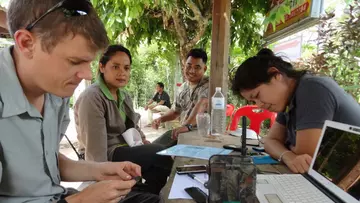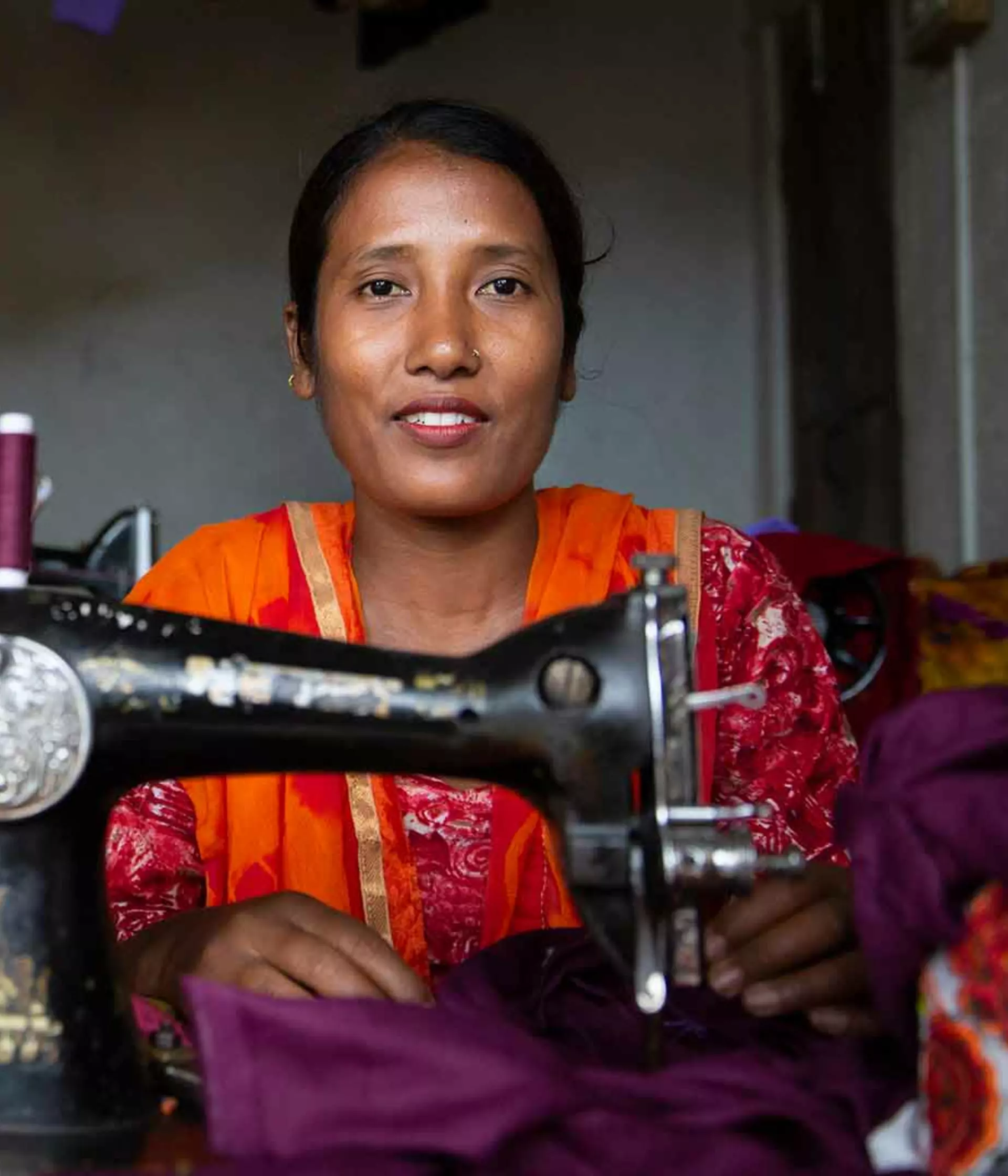
Three-quarters of the terrestrial environment has been significantly altered by human actions.
What is more, over a third of the world’s land surface is now devoted to crop or livestock production. This squeezes wildlife into smaller habitat fragments.
Some animals, such as Asian and African elephants, wild dogs and big cats, have huge ranges, disperse widely when young, or migrate vast distances over the years and seasons. As human activity increasingly encroaches on this space, there are serious risks of predation of livestock, damage to crops and buildings, and deaths and injury for humans and animals.
Even within protected areas, wildlife and people can compete for resources, which can have damaging impacts. For instance, livestock grazing, or hunting of ungulates that big cats need as prey.
Why do we work on reducing human-wildlife conflict?
In many of our project sites around the globe, communities live close to the poverty line, and close to potentially dangerous species such as tigers and elephants. Losing crops, livestock, property, or even a family member to wildlife can devastate a family. It also reduces local support for conservation and can result in retaliatory killing of conflict animals.
We are working to enable people and wildlife to coexist peacefully, by protecting crops, livestock and people from wildlife, and by working for connectivity conservation, so that wide-ranging species can disperse safely.
Locations
Kenya
The African wild dog and cheetah need space to survive more than any of Africa's large carnivores. Only a handful of protected areas are big enough for these two increasingly threatened species, so the Kenya Rangelands Wild Dog and Cheetah Project targets private and community lands in northern Kenya, outside protected areas. ZSL and our partners’ work includes outreach to Masai and Samburu herders, whose traditional livestock husbandry is not only very effective at deterring wild dogs from attacking livestock, but leaves space for wild dogs, cheetah, and their prey to survive.
In partnership with local organisations, we also support communities living on the borders of the Tsavo Conservation Area, who experience significant levels of human-wildlife conflict. We are working together with community members to co-develop the most appropriate mitigation tools in conflict hotspots, such as beehive fences that deter elephants from raiding crops, with the added benefit of honey production.
India and Nepal
In lowland Nepal and Northern India, the indigenous Tharus have a long history of living alongside wildlife. However, these communities – already facing high levels of poverty – are vulnerable to tiger attacks on people and livestock, while tiger prey (boar and deer) target their crops. We have enabled hundreds of households to build predator-proof corrals to keep their animals safe; we are working to reduce the need for people to go into national park forests, by increasing productivity of grazing elsewhere; and we support livelihoods that are not vulnerable to human-wildlife conflict (such as tailoring and tourism).
China
With only a few hundred wild Asian elephants living in China (less than 1% of the world’s wild Asian elephant population), ZSL has been engaged widely with cross-sectorial stakeholders in China to identify immediate conservation and scientific research priorities for the remaining populations. ZSL also works closely with the IUCN SSC Asian Elephant Specialist Group to facilitate transboundary conservation dialogues between China and its neighbouring countries. To protect the ecological connectivity of elephants and their habitats from the threats that linear transportation infrastructure development (primarily roads, railways, and canals) poses, ZSL is part of the CCSG Transport Working Group to develop the global Technical Report titled “Maximizing ecological connectivity in the development of roads, railways, and canals”. ZSL also founded China‘s most long-lasting urban events of Conservation- Science -Talk series “We Care” in Yunnan Province where the elephants are distributed in China, in the hope of inspiring, informing, and empowering people from different backgrounds to advocate for conservation.

Thailand
We work with local communities that live around Thailand's protected areas, to understand, prevent or mitigate conflict with elephants and tigers. We conduct research into the reasons why human-elephant conflict occurs, and we trial humane methods to keep elephants away from crops and settlements. ZSL supports community-led interventions, including land-use planning, access to state support for damage, and advance warning systems (light/sound deterrents, and cameras and training for SAFER - the System for Alerting Farmers to Elephant Raids) to safely drive elephants away from crops.
Related ZSL projects
Dja conservation complex
Empowering local people to protect their home and the wildlife they live alongside.
Cheetah and wild dog conservation: Kenya Rangelands Wild Dog and Cheetah Project
Helping people live alongside cheetahs and African wild dogs.
How a tailor can save tigers
How can a tailor help save a forest?
Illegal wildlife trade in Mongolia
We have pioneered infrastructure to prevent the illegal wildlife trade across Mongolia, by establishing a new ecological police department and providing cutting-edge border control training.
Understanding bats and disease
Bats make up 22% of all mammals, and their unique immune response which enables them to remain healthy despite carrying viruses that would cause serious disease in people and other mammals.
